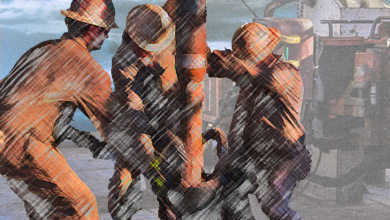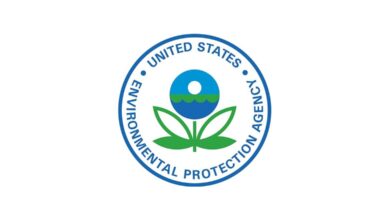ISO approves projects to develop new standards for offshore containers
The International Organization for Standardization (ISO) will develop new standards for offshore containers:
•NP 10855-1 Offshore containers – Part 1: Design, manufacture and marking
•NP 10855-2 Offshore containers – Part 2: Lifting sets
•NP 10855-3 Offshore containers – Part 3: Periodic inspection examination and testing
The projects are being undertaken under the auspices of TC67/SC7. Persons interested in participating should contact their national standards bodies.
Mexican marine pollution law now in force
The Law on Spills in Mexican Maritime Zones (Ley de Vertimientos en las Zonas Marinas Mexicanas) came into force on 16 July. The law seeks to control and prevent pollution or alteration of the sea caused by spillages deposited in Mexican maritime zones, according to the zones governed under the Federal Sea Law. Specifically, the law will determine the events that will be regarded as spills or dumping in relation to ships (vessels), aircraft, platforms and other constructions or buildings.
The following events will be penalized if they are carried out without a permit issued by the Maritime Ministry, which is also authorized to apply and interpret the Convention on the Prevention of Maritime Pollution by Dumping of Wastes and Other Matter 1972:
•The discharge, disposal, release or introduction into Mexican maritime zones – whether deliberate or accidental – of waste or other materials, including alien ballast water from vessels, aircraft, platforms or other structures;
•The storage of waste or other materials on the seabed or subsoil thereof from vessels, aircraft, platforms or other structures;
•The discharge of any organic material in order to attract biological species that are not intended to be fished;
•The placement of materials or objects of any kind in order to create artificial reefs, docks, jetties, breakwaters or other structures;
•The deliberate sinking or abandonment of vessels, aircraft, platforms or other structures, as well as those derived therefrom, for the sole purpose of deliberate disposal thereof; and
•The re-suspension of sediment – consisting of the return of deposited sediment into a state of suspension in the water body – by any method or procedure that results in sedimentation.
The implication of this law for drilling contractors is yet to be determined.
European operations forum highlights offshore directive, well control standards
IADC held a European Operation Forum meeting in Brussels on 2 July. Representatives from the EU and Norwegian regulators participated, as did representatives from the EU Commission and drilling contractors working in the EU and Norway.
The EU regulators offered presentations covering current issues, such as the NSOAF Audit Report and HSE’s KP4 initiative. The EU Commission representative discussed the current status of the EU Offshore Directive and common incident reporting format.
The drilling contractors made a brief presentation on the challenges they face operating in EU countries and Norway. Among the issues raised were:
• IADC WellCAP versus IWCF well control standards;
• Harmonization amongst regulators in the North Sea area to ensure easier transfer of rigs across boundaries;
• Alignment on what competency standards are required;
• Alignment of days on/off in UK, Denmark and Netherlands; and
• Difference in requirement of size of helidecks in Norway and the rest of the North Sea.
IADC staff also made presentations on new initiatives being undertaken by the association.
IADC issues federal regulatory summary for onshore operations
IADC has issued its latest Federal Regulatory Summary. Released semi-annually, the report details federal regulatory actions that could impact onshore drilling.
The 30 June edition includes updates related to the national fire codes, hydraulic fracturing on federal/Indian lands, combustible dust, process safety management and prevention of major chemical accidents.
Towing vessel safety advisory committee accepts tasking on KULLUK grounding
The Towing Vessel Safety Advisory Committee (TSAC), a Federal Advisory Committee to the US Coast Guard (USCG), has accepted a tasking to examine the USCG’s Report of Investigation into the grounding of the KULLUK and to make recommendations to the USCG. A TSAC Subcommittee is being established to examine the wide-ranging issues associated with the grounding of the KULLUK. These include towing configurations, escorts and tow plans and personnel qualifications, among others.
The recommendations are to be provided by the USCG by March 2015.
Click here for the marine pollution law (in Spanish)
Click here to access the Federal Regulatory Summary via IADC’s website.




